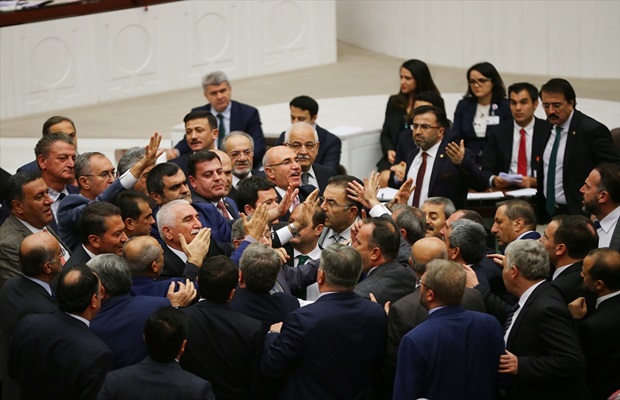“Not a Single Newspaper is Free of Polarizing the Society”

Hrant Dink Foundation has been conducting the project titled “Media Watch on Hate Speech” since 2009.
The Media Watch on Hate Speech Report in 2017 reminds a fact: The provocative and discriminatory language is much more used before elections. Another fact is that not a single newspaper is far from polarizing the society.
We interviewed Gamze Tosun from Hrant Dink Foundation about their project, the report and hate speech in Turkey.
We see that Jews, Syrians and Armenians are the most targeted groups in the press in 2017. Is there an obvious difference this year?
There is no huge difference regarding the targeted groups. As a result of the rooted feeling of hostility, Jews, Armenians and Christians are the ones that are subjected to hate speech the most. However, for the last four years we see that Syrians are among the top three.
Hate speech is more common in partial media but sometimes we come across with it in a non-mainstream newspaper, too. How do you evaluate this?
Yes, it is more common in particular newspapers but not a single one is far from using discriminatory language. That’s why; we read every newspaper very carefully. It is not possible to say that the usage of this language is always intentional. Some of the expressions are deeply rooted in our language; it is hard to recognize that it is indeed a discriminating discourse.
Your reports can also be regarded as some kind of historiography. How do you regard your project in this respect?
Some of the main objectives of this project are to generate knowledge on the concept of “hate speech”, make discriminatory language visible and promote the use of a more respectful and informed language in terms of human rights and minorities. The issue of “hate speech” is somehow new for Turkey and our project has an aim to bring it up to the agenda. This project does not have a claim to present a complete analysis of discrimination and marginalization in Turkey. We are attentive to highlight the methodological parts of the project while evaluating its sphere of influence. As part of this study, national and local press is scanned and news articles and columns containing discriminatory, marginalizing and targeting discourse are determined.

Bizi Takip Edin